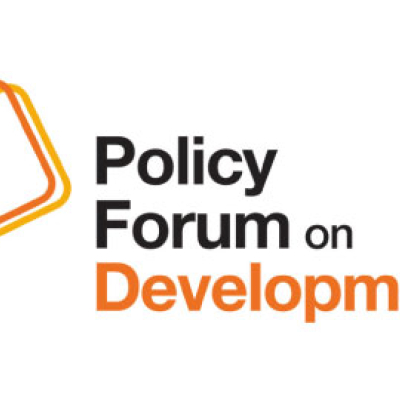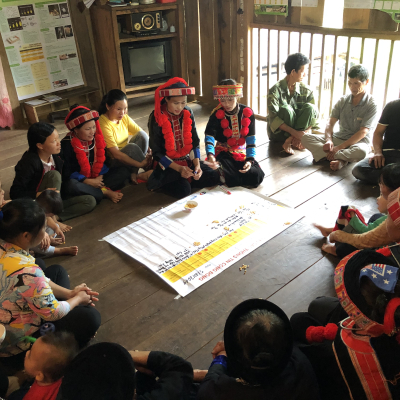Groups representing citizen interests around the world are under pressure. Funding cuts and restrictive laws are curtailing their freedom to operate, and many participants at the 2016 Policy Forum on Development (PFD) and Civil Society Organisations (CSO) Forum spoke of a ‘shrinking space’ in which they could work. They called for EU support to strengthen their position and help them achieve sustainable development on a local level.
“In many countries, governments are coming up with rules and regulations to limit the freedom of citizens, but also of their organisations,” said Cornelius Hacking, Co-chair of the Task Team on CSO Development Effectiveness and Enabling Environment. “People want to organize themselves to advocate for certain things, like schooling, healthcare, good roads, free press, land rights or a political party. And in many countries governments are trying to limit that space, saying CSOs are paid by foreign donors, they must be foreign agents.”
Over 120 laws restricting freedom of association and assembly have been proposed or enacted in 60 countries since 2012, according to research by the International Centre for Not-for-Profit Law. “It’s a worrying trend. Sometimes the laws relate to the registration of CSOs, to tax, or to funding restrictions, domestic and sometimes foreign,” said Hanna Surmatz, Senior Legal Affairs Officer at the European Foundation Centre.
Funding squeeze
“With motivations around national sovereignty and security, governments want better control of foreign funding flows into a country,” said Surmatz. As many CSOs receive support from overseas donors and development agencies, they can find themselves unintentionally hit. Surmatz pointed to Kosovo and Brazil as countries where counter-terrorism and anti-money laundering laws have had a negative impact on civil society, but emphasized that a similar effect is at work globally. Hear more from Hanna Surmatz in the PFD Group.
While not dependent on overseas funding like many CSOs, local authorities are also finding themselves squeezed financially. They rarely have the capacity to raise funds autonomously. “Those things are beyond their mandate,” said Bernadia Irawati Tjandradewi, Secretary General of United Cities and Local Governments (UCLG) in Asia Pacific. “It’s done by central government.”
Tjandradewi would like to see local authorities build their capacity to write successful funding proposals, and sees this as an area where the EU could lend support. “When the EU launches a call for proposals, it invites CSOs and local governments, but local governments have no capacity to design good programmes and raise funds from donors – it’s not their job. The EU should help raise the capacity of local governments to work with them.”
UCLG Africa, which represents 40 national associations of local authorities, 2,000 cities and 250 million citizens, hopes to open other funding streams to local organisations. “We are busy talking to development banks, the World Bank and others in order that local authorities have better access to funding, not only from their own revenues but from financial markets,” said Jean-Pierre Elong Mbassi, Secretary-General of UCLG Africa.
Enabling environment
Alongside these efforts on the funding front, UCLG Africa is pushing to improve the institutional and administrative environment for local authorities. A small minority of African countries recognise and protect local authorities in their Constitutions. With the continent’s population expected to double by 2050, the majority in urban areas, cities will need to become “inclusive engines of growth”, said Elong Mbassi. They must be accountable to citizens and empowered to promote local development.
Rita M. Lopidia, executive director of Eve, a women’s organisation in South Sudan, explained the importance of supporting CSOs, particularly in fragile contexts. She believes that their absence contributed to South Sudan’s return to conflict after independence in 2011: “There was a lot of emphasis on State-building, but not really focusing on civil society and citizens, and they are the foundation. They can help a fragile State move from fragility to development,” said Lopidia.
“Civil society is beyond NGOs - it’s the trade unions, teachers’ associations, academia, faith-based organisations, and their participation is crucial.” Lopidia warned that their voice is disappearing. “Either you’re co-opted into government and you shut up, or if you continue to speak, activists disappear, some of them are killed.”
UCLG-A is monitoring the situation of CSOs and local authorities in every African country and publishes rankings showing the extent of the work needed to empower them (see video below). “Every problem becomes tense when you don’t have a platform for dialogue. The most powerful countries on earth are strongly decentralized, and that’s what we’re pushing for,” said Elong Mbassi.
Elong Mbassi called on the EU to support the decentralization process and to strengthen local organisations through its partnerships in Africa. “The EU can be pedagogic and say, one of the conditions to develop a partnership with you is to make sure civil society and local authorities are more prominent in the governance system. It worked in Burundi – the EU said, change the way you discuss with your civil society, with your opposition, and if you don’t comply we stop our cooperation. This is the way to go.”
Partnerships
A third way CSOs and local authorities can gain strength is through better cooperation with each other and with other stakeholders. As cities expand, they often face challenges which organisations in other regions have already begun solving. Peer-to-peer learning and partnerships across borders will accelerate progress on the Sustainable Development Goals (SDGs), and are already springing up in Asia.
Since 2010, UCLG has been running an EU-supported programme to share best practices among local governments in the 10 ASEAN countries. “In many countries in Asia, local governments have limited capacity in running their programmes and being accountable to the people,” said Tjandradewi. “We play a good role as a knowledge hub. We match cities interested in certain issues, for example, solid waste, or water.”
She shared the example of Jeju, a volcanic South Korean island, which is partnering with Wakatobi in Indonesia to tackle problems of waste management. “Wakatobi is a beautiful island which lacks the capacity to deal with garbage and pollution. And tourism is important for them, so these are essential. Jeju has experience on low carbon, for example with electronic cars, and is adapting this knowledge to the local context.”
Hear about other knowledge-sharing networks supported by new Framework Partnership Agreements from Evelyn Balais-Serrano, Asian Forum for Human Rights and Development and Marcus Oxley, Global Network of CSOs for Disaster Risk Reduction:
With an increasingly important role in achieving the SDGs, it is vital for CSOs and local authorities to solve these challenges of funding and straitened operating environments and to develop knowledge-sharing partnerships.
“We would love to see the EU Delegations put working with CSOs at the heart of their work, and to always discuss the question of civic space with their host governments,” said Hacking. “The EU is doing a lot, through engagement in forums such as these, but it can reach out even more.”
Further Reading
- Hear more views from the 2016 Policy Forum on Development and read the key outcomes of the discussions
- Learn more about the CSO Forum and hear participants’ views on Capacity4dev
- Voices & Views: Roadmaps to Engage Civil Society
- Strategic Partnerships: Uniting the European Commission and Local Authorities
- What is the Territorial Approach to Local Development?
- Guardian: Human rights groups face crackdown not seen in a generation
- Civil Society Under Assault – Douglas Rutzen, Journal of Democracy
Teaser image credit: Dominiek Benoot, DEVCO image library




Log in with your EU Login account to post or comment on the platform.